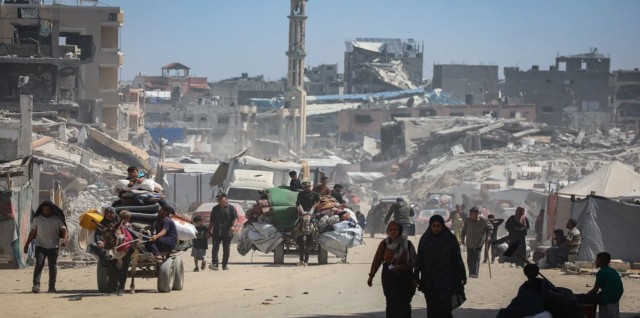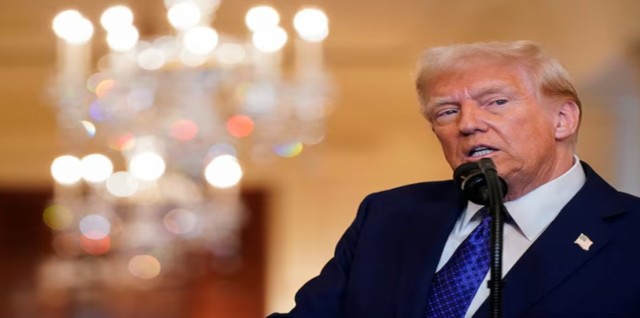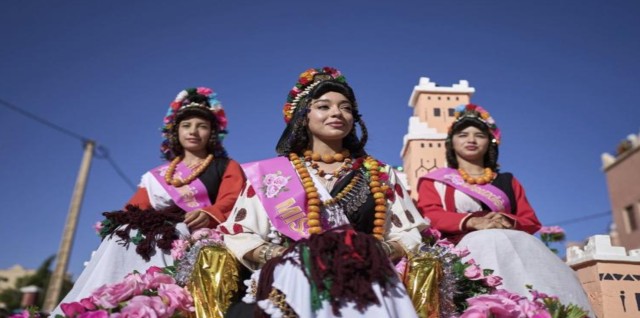
Palestinians transport injured individuals following an Israeli attack on a structure near Al-Aqsa Hospital in Deir al Balah, Gaza Strip, dated Wednesday, January 10, 2023. (Photo by Adel Hana/The Associated Press)
As the International Court of Justice (ICJ) gears up to hear arguments from South Africa on its claim that Israel's military actions in Gaza are "genocidal in character," the Canadian government remains notably reticent on the matter. The ICJ proceedings are scheduled to commence with South Africa presenting its case on Thursday, followed by Israel's response on Friday.
Despite queries from CBC News, Global Affairs Canada (GAC) declined to comment on whether the government would take a stance, emphasizing that they are "following the situation closely." The legal dispute stems from Israel's military campaign in Gaza, triggered by an October 7 attack by Hamas, resulting in a substantial loss of life on both sides.
South Africa's submission to the court contends that Israel, by neglecting to provide essential humanitarian assistance, is violating the UN Genocide Convention. The allegations include the deliberate destruction caused by a sustained bombing campaign, leading to the evacuation of 1.9 million Palestinians.
Mona Abuamara, Chief Representative of the Palestinian General Delegation to Canada, urged Canada to support South Africa's case, decrying the devaluation of Palestinian lives on the international stage.
Israeli President Isaac Herzog vehemently rejected the allegations, pledging to present Israel's case with pride, asserting their right to self-defence under international humanitarian law. U.S. Secretary of State Antony Blinken echoed this sentiment, dismissing South Africa's claims of genocide as "meritless."
Despite recent calls by Israeli cabinet ministers for the displacement of Palestinians and the re-establishment of settlements, Prime Minister Benjamin Netanyahu publicly disavowed such suggestions, emphasizing Israel's commitment to fighting Hamas terrorists within the bounds of international law.
South Africa has asked the ICJ to determine its jurisdiction to issue "provisional measures" to halt Israel's actions against Palestinians during the ongoing case. While ICJ decisions are binding, enforcement falls under the purview of the UN Security Council.
The legal wrangling has divided Canada's governing Liberal caucus. MP Salma Zahid supports South Africa's application, citing the need to respect international law, while MPs Marco Mendicino and Anthony Housefather dismiss the claim as "baseless and unconscionable." The court's decision, even if not enforceable, could exert political pressure on the international community.
During this diplomatic and legal standoff, NDP foreign affairs critic Heather McPherson urged Canada to refrain from intervening in the case, aligning with the position taken by France. As the ICJ proceedings unfold, the Canadian government's stance remains elusive, leaving the outcome of this high-stakes international legal battle uncertain.















